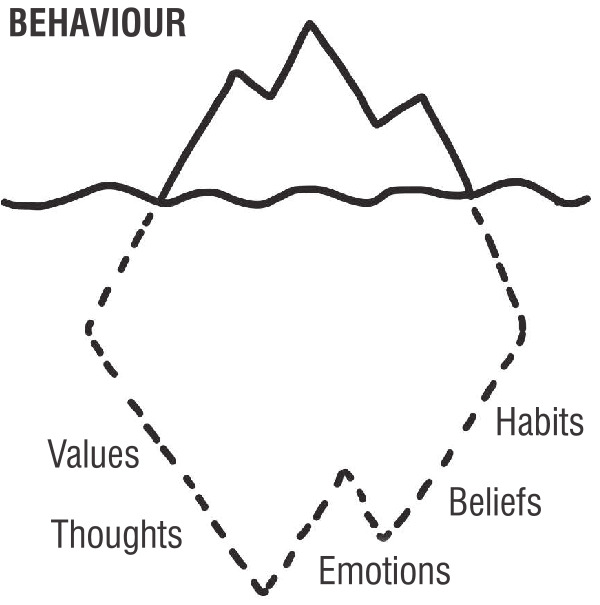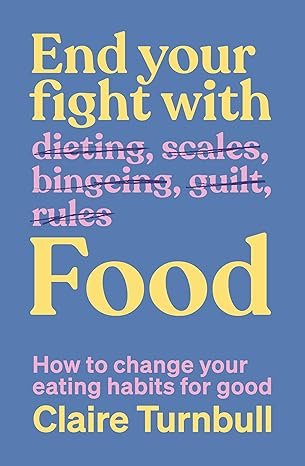
Claire Turnbull believes it is hard to help others if you have not experienced tough times yourself — so she is "brutally honest" about her own journey.
"I think when you've got to the point where you didn't want to be alive any more and you've gone through the process of wanting to take your own life, I think off the back of that, where I've got to now, is, like, I've literally got nothing to lose by putting this out there because I nearly wasn't here anyway."
If by "ripping off my band-aids and just sharing it" helps her connect with people, then she is willing to do it.
"Because we've all got our battle scars and I think that's where the healing is, and I think we don't need to be defined by those, but they are part of us.
"And I just hope that by revealing some of my own scars that someone can feel more comfortable with theirs."
She is quick to point out that she is not 100% healed and will never be.
"I’m still on the journey. But I can pick up a marshmallow and be like, oh, I don't really fancy that and put it down. But I'm a person that used to, literally, if I looked at a bag of Maltesers I'd already eaten three bags of them."
Turnbull, a trained dietitian and fitness instructor, details that journey in her latest book alongside insight, advice, tips and tricks on how people can change their relationship with food for the better "for free".

"But the first thing they default to is the next diet. And what happens is people get results, and then they can't maintain it because it's unrealistic, and really they haven't got to the root of the problem for themselves."
Food information can be quite subtle and sneaky these days, but anything that restricts what you eat is a diet and will be hard to maintain long-term, she says.
"It’s bull.... and people know it. But we all think, gosh we’ll get there. Well, you know, it’s not worked the 20 times we’ve done it before, it’s still not going to work this time. It cannot be fixed in six weeks, it cannot be fixed with a pill."
Many people reach for food or alcohol for comfort or due to boredom. For others it is a way to manage difficult feelings resulting from abuse and trauma, while for Turnbull it was low self-esteem and a tendency to be obsessive.
"There's all these different reasons why we struggle with food, and it's this horrible cycle of self-hatred and self-blame and shame around the way that we eat and we think that the next diet is gonna be the answer, and I just want people to understand why they've got themselves into this position and then find a way through that is a lot more compassionate."
If it is an emergency and you feel like you or someone else is at risk, call 111. She warns the book is not a "quick fix" and that people’s journeys, like her own, will be ongoing.
"Real life is always going to throw you curveballs and always going to throw you challenges and unfortunately all these diets that sell you the quick-fix option.
Turnbull, who has a positive psychology diploma, worries that each time someone experiences that, it erodes their soul. But there is another way, she says.
"We just need to realise that we are all human, we are all imperfect. We all are going to struggle with very different things. We're all going to make mistakes."

"So when people understand themselves, that is the first point of change. So through my 20 years of working, the biggest thing I know is that awareness is the first stage of change."
The book aims to help people understanding why they struggle with food — why they eat when they are bored or tired or to manage their emotions.
"We eat very habitually. People finish their food off their plate because we were told to do that when we were children. We eat when something is offered to us because it's rude to say no. We eat food when it's there at a morning tea shout or a lunch thing or picking out of our kids' lunch boxes when it's there.
"There's so much eating and drinking that happens that has got absolutely nothing to do with us consciously, like, nourishing our bodies."
So if people are able to eliminate what Turnbull calls "non-hungry" eating and manage those behaviours they do not need to go on a diet because a lot of the extra food and drinking they are doing is what has sent them off-track.
Instead of using a restrictive or limitation method which just makes the food more appealing, she urges people to flip the way they think about food.
"What I encourage people to do instead then is actually approach food from a place of what can you add in to the way that you're eating to help nourish your body better? How can you improve the way that you eat?"
She also looks at sleep. How much or how little people get impacts on appetite and cravings and ability to manage emotions.
It helps to look at how people grew up, their parents’ relationship with food and how that influences their own behaviours, she says.

She was in her second year of university when her mental health took a turn for the worse and she decided she wanted it to be all over but luckily a friend walked in and took her to the doctor.
Getting her mother to proof-read the book was very difficult.
"She cried a lot because she didn’t know what happened to me. I didn’t go into detail of what happened, but dear God, it was a hard read."
It was also hard as her mother blamed herself despite her behaviour being completely normal for that era.
"It's like smoking, you know, no-one knew the implications of putting your kid on a diet or telling them they were a bit too fat, you know?"
Turnbull is thankful both of them have a healthier relationship with food these days.
"She's in a really good place with food, because of the work that I have done. And I said, ‘Mum, if we'd not been through this journey together, this book and the work that we've done together is not going to help all the other mothers and daughters out there that have been through the same thing’."
The important thing for parents to realise is that children are watching carefully their language and actions around food as it is behaviour not words that children take in, she says.
"It's so difficult for children to eat well in this modern environment that we live in. But they are not listening to what you say, they are watching what you do."

And no, she is not judging you when she sees you in the supermarket or in a restaurant.
"I would just like to always say to people, I don't care what's in your trolley. If I'm around a friend's house or out for dinner, I genuinely am not thinking about what other people are eating. They're probably thinking about it more than I am, to be honest. There's no place for judgement."
The book
End Your Fight With Food, Claire Turnbull. How to change your eating habits for good, Allen and Unwin, RRP $36.99.
Where to get help:
Lifeline: 0800-543-354 or (09) 522-2999
Suicide Prevention Helpline: 0508-828-865 (0508 TAUTOKO)
Youthline: 0800-376-633 or free text 234
Samaritans: 0800-726-666












